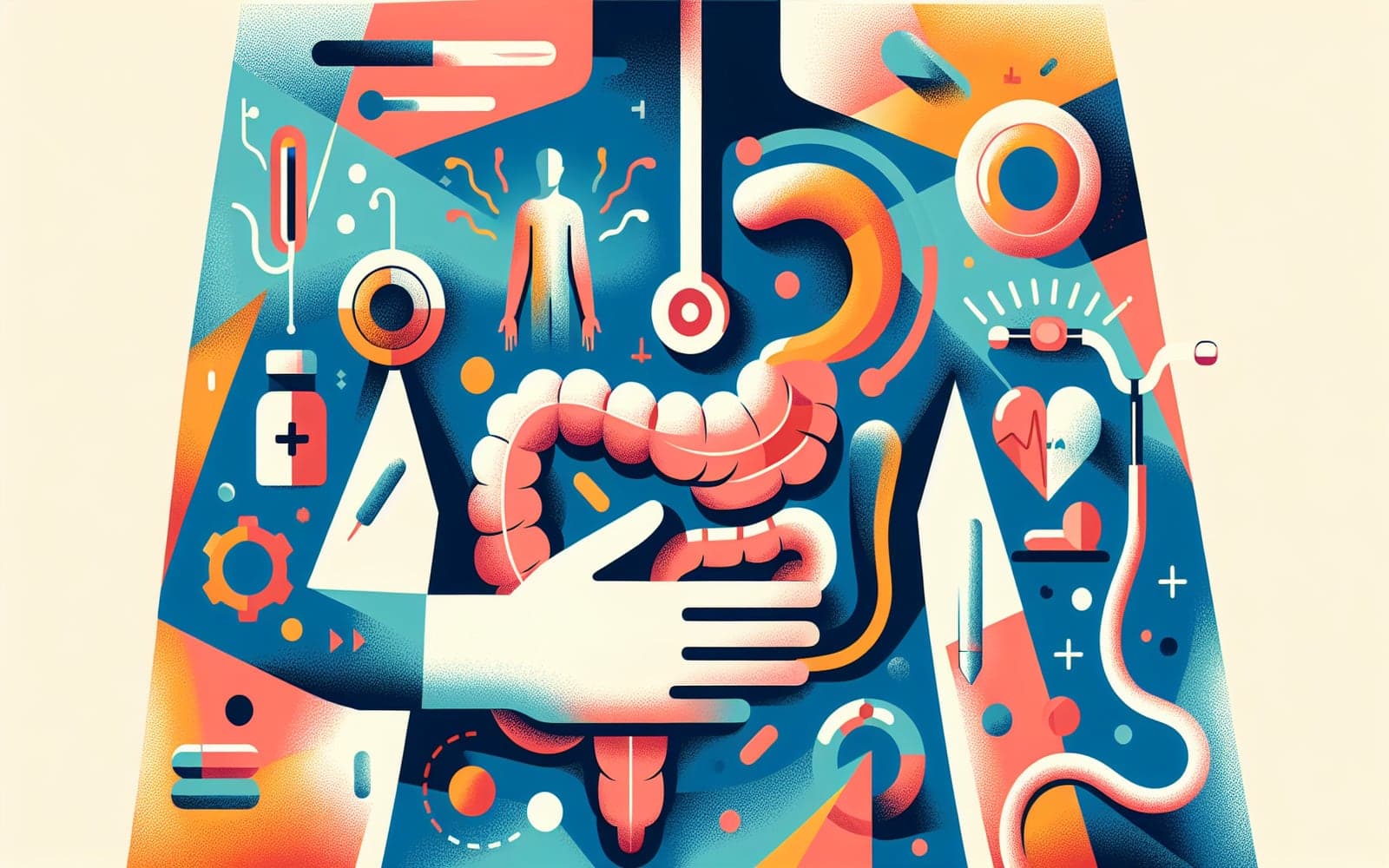Contents
-
Who's at Risk? Factors That May Increase IBS Likelihood
-
Common Triggers: What Sets Off IBS Symptoms?
-
The Gut-Brain Connection: How Your Mind Affects Your Bowels
What Triggers IBS? Understanding Risk Factors and Flare-Ups
What Triggers IBS? Understanding Risk Factors and Flare-Ups
The IBS Puzzle
Irritable Bowel Syndrome (IBS) can be unpredictable, but certain factors may increase your risk or trigger symptoms. This article explores what we know about IBS risk factors and common triggers.
Contents
-
Who's at Risk? Factors That May Increase IBS Likelihood
-
Common Triggers: What Sets Off IBS Symptoms?
-
The Gut-Brain Connection: How Your Mind Affects Your Bowels
Who's at Risk? Factors That May Increase IBS Likelihood
While anyone can develop IBS, certain factors may increase your risk. Women are more likely to be diagnosed with IBS than men. Age is also a factor, with most diagnoses occurring before age 50. A family history of IBS or a personal history of anxiety, depression, or other mental health conditions may also increase risk. Interestingly, having a severe infection or food poisoning can sometimes lead to IBS-like symptoms, a condition known as post-infectious IBS.
Common Triggers: What Sets Off IBS Symptoms?
For many with IBS, certain factors can trigger symptom flare-ups. Stress is a common culprit, with many reporting worsened symptoms during stressful periods. Certain foods can also trigger symptoms, though these vary from person to person. Common dietary triggers include caffeine, alcohol, and high-fat foods. Hormonal changes, particularly in women, can also influence IBS symptoms. Some people find that their symptoms worsen after taking certain medications or antibiotics.
The Gut-Brain Connection: How Your Mind Affects Your Bowels
There's a strong connection between the brain and the gut, often called the gut-brain axis. This connection explains why stress and anxiety can trigger or worsen IBS symptoms. It's not that IBS is 'all in your head' - rather, the nervous system in your gut is highly sensitive and responsive to signals from your brain. This is why stress management techniques can be an important part of managing IBS.
FAQs
Is IBS caused by food allergies?
Food allergies aren't a cause, but food sensitivities can trigger symptoms.
Can antibiotics cause IBS?
Antibiotics can disrupt gut bacteria, potentially triggering IBS-like symptoms.
Is IBS genetic?
There may be a genetic component, but it's not the only factor.
Knowledge is Power
Understanding your personal IBS triggers can be a powerful tool in managing your symptoms and improving your quality of life.
Additional References
-
Lovell RM, Ford AC. Global prevalence of and risk factors for irritable bowel syndrome: a meta-analysis. Clin Gastroenterol Hepatol 2012; 10:712.
-
Qin HY, et al. Impact of psychological stress on irritable bowel syndrome. World J Gastroenterol 2014; 20:14126.
-
Enck P, et al. Irritable bowel syndrome. Nat Rev Dis Primers 2016; 2:16014.
This article has been reviewed for accuracy by one of the licensed medical doctors working for Doctronic.












